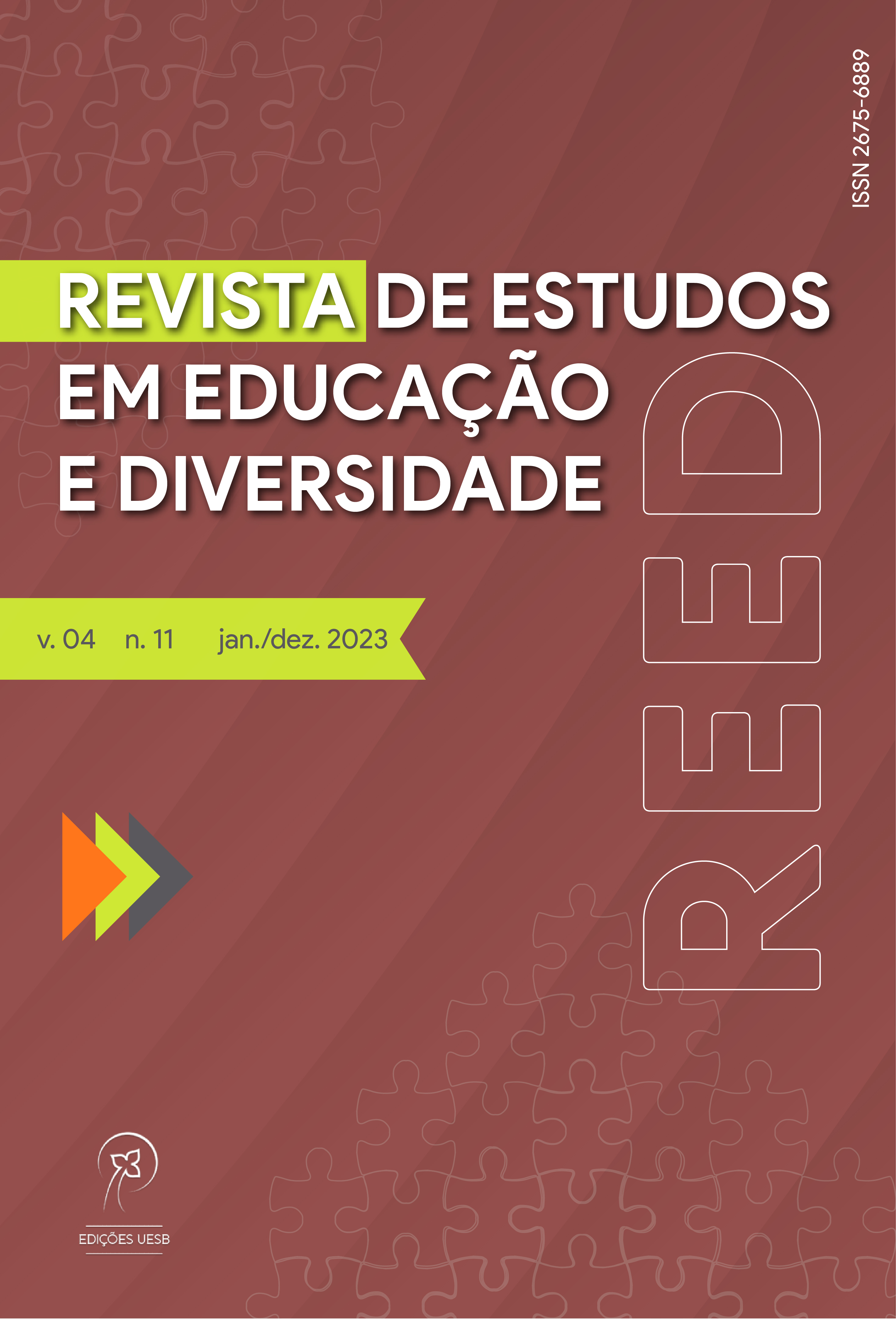The Farmei! podcast in teacher initial training: contributions to a humanized approach to non-formal spaces
DOI:
https://doi.org/10.22481/reed.v4i11.14025Keywords:
Podcast, Chemistry Education, Teacher trainingAbstract
The present work aims to promote the analysis and discussion regarding the use of the Farmei! podcast, whose production aims to disseminate the natural sciences and their connections with human rights through games and playful activities, especially video games. To achieve this, surveys were conducted in the proceedings of two scientific events, the National Meeting on Chemistry Teaching and the National Meeting on Research in Science Education, between the years 2010 and 2020, in order to identify theoretical productions addressing the use of podcasts as formative tools for natural science teachers. From the analysis performed, a gap was noticed in relation to research addressing the use of podcasts as didactic tools and, even more incipiently, their use in teacher training. Seeking to contribute to overcoming this situation, recommendations are presented to identify the potentials and limitations of a podcast, Farmei!, as an assisting tool in the teaching and learning process of future teachers, addressing innovative themes for education, in this case, non-formal spaces and their contributions to science education.
Downloads
References
HENRIQUES, Rosali; LARA, Lucas. F. Os museus virtuais e a pandemia do covid 19: a experiência do Museu da Pessoa. Museologia & Interdisciplinaridade, v. 10, n. Especial, p. 209–220, 2021. Disponível em: https://periodicos.unb.br/index.php/museologia/article/view/35924. Acesso em: 15 abr. 2023.
JACOBUCCI, Daniela. F. C. Contribuições dos espaços não-formais de educação para a formação da cultura científica. Em Extensão. Uberlândia, v. 7, 2008. Disponível em: www.seer.ufu.br/index.php/revextensao/article/download/20390/10860. Acesso em: 10 mar. 2023.
KRAPAS, Sonia.; REBELLO, Lúcia. O perfil dos museus de ciência da cidade do Rio de Janeiro: a perspectiva dos profissionais. Revista Brasileira de Pesquisa em Educação em Ciências. Porto Alegre, v. 1, n. 1 p. 68-85, jan./abr. 2001. Disponível em: https://periodicos.ufmg.br/index.php/rbpec/article/view/4185. Acesso em: 10 mai. 2023.
MARQUES, Fabrício. Microfones abertos para a ciência. Revista Pesquisa FAPESP, n. 277, março de 2019. Disponível em: https://revistapesquisa.fapesp.br/microfones-abertos-para-aciencia. Acesso em: 22 de ago. 2023.
OLIVEIRA, Roberto. D. V. L.; SILVA, João. R. R. T. Jogos digitais como arte na interface entre educação científica e educação em direitos humanos: reflexões e possibilidades. Revista Eletrônica Ludus Scientiae. Foz do Iguaçu, v. 3, n. 2, p.12 - 34, Jul./Dez. 2019. Disponível em: https://revistas.unila.edu.br/relus/article/view/1843/1938. Acesso em: 24 de mar. 2023.
PINHEIRO, Bárbara C. S.; OLIVEIRA, Roberto D. V. L. Divulgação... de qual ciência? Diálogos com epistemologias emergentes. In: ROCHA, Marcelo B.; OLIVEIRA, Roberto D. V. L. (orgs.). Divulgação científica: textos e contextos. São Paulo: Editora Livraria da Física, 2019.
SILVA, Camila. S. Formação e atuação de monitores de visitas escolares de um centro de Ciências: saberes e prática reflexiva. 2009. 141f. Dissertação (Mestrado em Educação para a Ciência) - Faculdade de Ciências, Universidade Estadual Paulista, Bauru, 2009. Disponível em: https://repositorio.unesp.br/handle/11449/90931. Acesso em: 10 mai. 2023.
Downloads
Published
How to Cite
Issue
Section
License
Copyright (c) 2023 Revista de Estudos em Educação e Diversidade - REED

This work is licensed under a Creative Commons Attribution 4.0 International License.
You are free to:
Share - copy and redistribute the material in any medium or format; Adapt - remix, transform, and build from the material for any purpose, even commercially. This license is acceptable for Free Cultural Works. The licensor cannot revoke these freedoms as long as you follow the terms of the license.
Under the following terms:
Attribution - You must appropriately give credit, provide a link to the license, and indicate if any changes have been made. You may do so in any reasonable way, but not in a way that suggests that you or your use is endorsed by the licensor.
There are no additional restrictions - You cannot apply legal terms or technological measures that legally restrict others to make any use permitted by the license.






